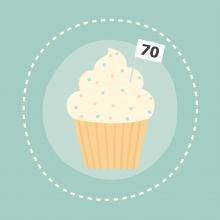self care
I embarked on a journey to self-care with a few small changes: affirmations, daily prayer and meditation, regular exercise, and breaks during my day. Within weeks, I felt better physically and emotionally. I felt more secure in my own identity and more connected to other people. But there was an unanticipated benefit: I felt more connected to God. It turned out that the more I cared for myself, the more I wanted to serve God in the world.
Recently I had the opportunity to read Aundi Kolber’s newest book, Try Softer: A Fresh Approach to Move Us out of Anxiety, Stress, and Survival Mode — and into a Life of Connection and Joy. The book quickly became a regular part of my self-care routine. Aundi is a licensed professional counselor and public speaker, and her work reflects the gentleness that so many of us need in a time in America when we are all a little (or a lot) frazzled by the social, political, and religious climate around us. We need books that help keep us tethered to the work of self-care so that we can do healthier work in the world. Try Softer is a book that can get us there.
Numerous reports, including Dana Milbank’s “President Trump actually is making us crazy,” have pointed out that since the 2016 election there has been an increase in mental health challenges including depression, stress, grief, anxiety, and sadness.
This is why the civil rights movement was so impactful. The movement for justice was fueled and sustained by faith. The soul was not considered something separate from the body it was the source, the epicenter, and the driver for non-violent resistance and hope-filled resilience. Dr. King called this soulful way of doing justice “soul force.” Soul force heals the misguided bifurcation between evangelism and social justice by showing the deep connection between our souls and our actions. We must recover the soul of justice, lest we end up cynical, burned out, and reactionary. Soul work sustains both individuals and communities in our justice work. We must not neglect our souls in the work for justice nor neglect justice to tend to our souls. We must commit to both lifestyles and collectives that demand soul care as a non-negotiable act of justice for all.
Self-care is important. If we lose our enthusiasm and start going through the motions, we’re not much good to anyone — including ourselves. Our love is diminished when we lose our sense of connectedness to the source of love, awe, and wonder. Our lives are diminished, too.
Can you imagine? I am now three score plus 10! According to measurements used during biblical times, a "score" was 20 years. Three score is 60 years. So three score plus ten, makes me 70. Moses put is this way in Psalms 90: "Seventy years are given to us! Some even live to eighty. But even the best years are filled with pain and trouble; soon they disappear, and we fly away." Well, I am not quite ready to fly away!
When I was a child, a 70-year-old person was truly ancient; like, really, really old. I imagined they were almost as old as dirt, salt, or the oldest Bible character, Methuselah. In my child's mind, 70 was too old to move fast, think hard, feel deeply, laugh out loud, dance gracefully, exercise intensely, and experience joy. Mostly, 70 year olds were just waiting to die. Right? Of course, they were definitely too advanced in years to think, feel, or act sexually, even though researchers say otherwise.
What is so amazing is that I feel many times better today than I felt at 60, 50, or even 40. 70 really IS the new 50!





